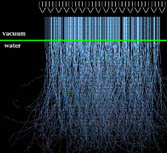
General
Teaching Tools
Case Materials
Case Materials
Clicking on the case below will take you to a table of contents of materials available for that case. Each contains a brief history of the case, teaching suggestions specific to the case, socio-technical and ethical analysis, two versions of exercises, and a variety of supporting documents.
Therac-25
Therac-25 was a medical linear accelerator, a device used to treat cancer. What made Therac-25 unique at the time of its use was the software. Not only did the software ease the laborious set-up process, but it also monitored the safety of the machine. In this case on safety critical software, you will find that some patients received much more radiation than prescribed despite the software safety programming,
Machado
At age19, Richard Machado was the first individual to be convicted of a federal electronic mail (e-mail) hate crime. The Machado case is one example of a handful of similar incidents that have occurred since the advent of the Internet.
Hughes Aircraft
Between 1985 and 1987, the Microelectronic Circuits  Division
of Hughes Aircraft shipped hybrid microelectronics to every branch of
the U.S. military without completing various environmental chip testing
processes required by contract. This is a whistle-blower case where the
allegations against Hughes Aircraft resulted in a criminal case and a
civil case.
Division
of Hughes Aircraft shipped hybrid microelectronics to every branch of
the U.S. military without completing various environmental chip testing
processes required by contract. This is a whistle-blower case where the
allegations against Hughes Aircraft resulted in a criminal case and a
civil case.
Additional, in-process cases
We present here four cases that are in-process. We expect eventually they will become part of a casebook published by Jones & Bartlett. They are incomplete, though still in the spirit of this site, quite extensive. We appreciate any feedback you would be interested in giving us as we revise the cases.
Educational Laptops (PDF case, 36 ms pages)
The Texas Legislature has been exploring various electronic media for delivery of textbooks to elementary and secondary students. In 1989, the 71st Texas Legislature expanded the definition of "textbook" to include CD-ROMS', diskettes, audio and video-cassettes, and laser discs. The 75th Texas Legislature initiated a pilot test in several school districts so that updated supplements to the "textbooks" would be delivered through computer networks. This large-scale effort to supply students with laptop computers, or even adequate access to computers, presents a wide range of ethical issues. The presentation of the case focuses on funding dilemmas in education, the complexity behind computer supported learning, and the interweaving interests (publishers, technology companies, parents, taxpayers) that face decision makers in educational technology. We include information from interviews done in Puerto Rico with people involved in a similar effort to incorporate technology into education.
Biomatrix (PDF case, 42 ms pages)
Biomatrix was a publicly traded pharmaceutical company that developed a treatment (Synvisc) for osteo-arthritis. Three individuals posted disparaging remarks about the company and Synvisc on Yahoo! message boards for almost a year. Biomatrix sued the three individuals and won. This was the first time online material has been found capable of containing libel. Presentation of the case focuses on the decisions that message board operators had to make as the case came to light, but also include design issues, legal issues, and ethical issues in online message board systems.
Carnivore (PDF case, 41 ms pages)
Traditional wiretaps are usually placed on the suspects’ phone
line in hopes of capturing a spy or a criminal. These methods have always
occasioned discomfort in the civil liberties community. With the advancement
in communications technology and encryption, privacy threats may overbalance
the utility of crime-surveillance technology. This case explores the delicate
balance between these two values and the use of an FBI device called Carnivore,
a "wiretap" for internet traffic that is placed directly on
the internet service provider’s (ISP) server. The case concentrates
on the balancing of these values, on the complexities that the Internet
has brought to privacy concerns, and on the balancing of values in surveillance
after the PATRIOT act.
Toysmart (PDF case, 35 ms pages)
Toysmart.com was a Disney-owned company that had been advertising, promoting, and selling toys on-line since January 1999. On May 22, 2000 Toysmart.com announced that it was going out of business and sought the help of a consulting firm, The Recovery Group, to confer in selling its assets. It was also on this date that advertisements began appearing in the Wall Street Journal and the Boston Globe in which Toysmart.com offered to sell its customer’s personal information including consumers’ names, addresses, billing information, and family information. This case provides an invaluable tool for looking at privacy issues in computing because it sets a precedent for other failing on-line companies -- they must maintain the rights of their consumers even if they are forced to file for bankruptcy. The Toysmart case also brings into question issues of honesty and deception in that toysmart.com was a licensee of TRUSTe, an organization that ensures that the privacy policies of on-line companies are maintained, and displayed its seal and trademark stating “Your information is safe with us!” on its website while advertising to sell its consumers’ private information only months later as the company was forced into bankruptcy.
